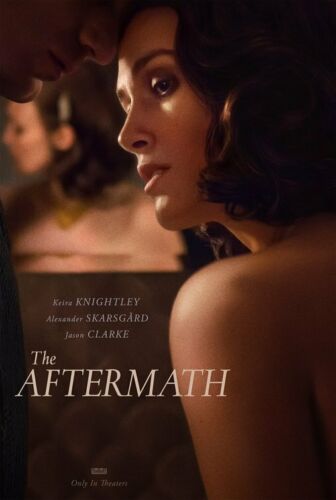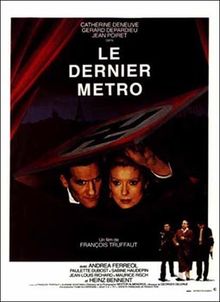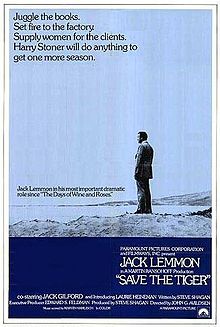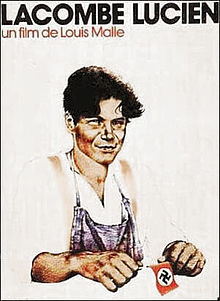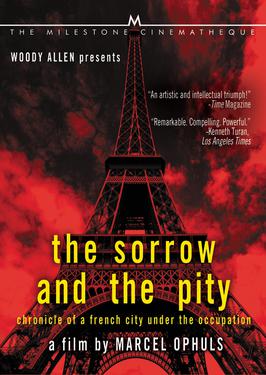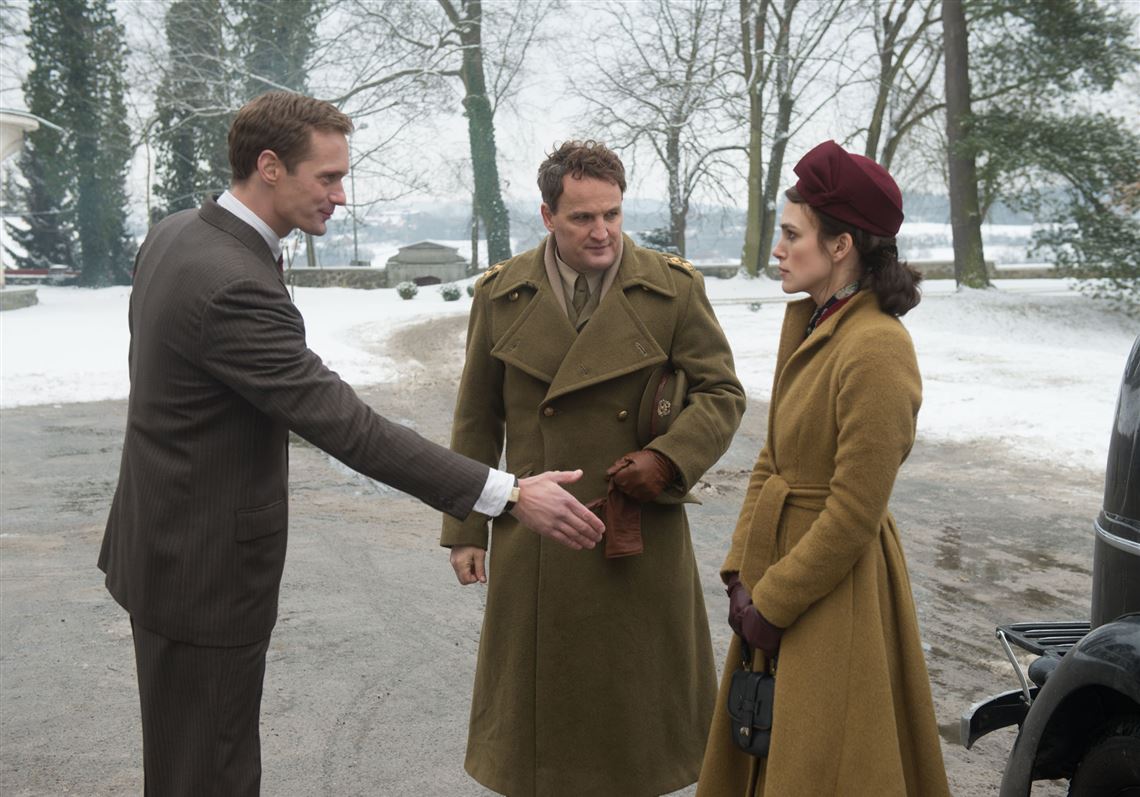
The Allies won, but it’s not the Germans doing the surrendering in ‘The Aftermath’
West Germany was/is quietly one of the world’s greatest success stories. A pulverized, defeated half-nation carved into thirds, it quickly re-emerged as a Western force, economic juggernaut and, most importantly, a permanent trusted ally of the conquering nations that occupied it.
None of that seems fathomable in “The Aftermath,” a 2019 film that depicts 1946 Hamburg (and its apparent hotel shortage) as hell on earth. The Brits and Germans both harbor awful memories and grudges, the Hitler youth are angrier than ever, and retribution, not rebuilding, is at the forefront of everyone’s mind.
The Brits, specifically Keira Knightley’s Rachael Morgan, are appalled to be there. The real story is one of the supporting characters, Rachael’s husband Lewis, who initially believes, and later affirms, that Deutschland merits fixing rather than finishing off.
That there might’ve been doubt about this is likely not something that came up in your high school history class. There have been countless movies about the Nazis, and every year brings a fresh batch. Some classics, such as “Lacombe, Lucien” and “The Sorrow and the Pity,” thrive on pushing emotional buttons that test how uncomfortable the Western world really was with Nazi Germany. “The Aftermath” somehow lands in this provocative genre, critical disdain for its admittedly “soapy” melodrama aside.
While Lewis Morgan is the thinker here, “The Aftermath” is certainly Keira Knightley’s film. Easily on the short list of candidates for The World’s Most Devastating Woman, Knightley owns the camera; it’s an aggravation whenever we’re diverted to males questioning and glaring at each other. How does she look? That deserves its own paragraph.
One of filmdom’s never-ending enormous mistakes is period costume. Filmmakers and their designers love to authenticate the clothing and hairstyles of a film’s setting, ignoring that those depictions do not arouse the same reactions today as back then. If everyone in 2019 still thought Roaring Twenties outfits and haircuts were chic, they’d wear them now. When people watch Robert Redford’s 1974 version of “The Great Gatsby,” they’re not seeing what are supposed to be some of the country’s most beautiful people, they’re seeing ... their grandparents. Roger Ebert, perhaps quoting someone else, used to say: Accuracy is no excuse for drama. Effectiveness is.
There is too much of Rachael’s look that reminds us this was a long time ago. There are definite parallels to “Chinatown,” in which the face of a beautiful and still-young woman bears hints of deep stress and tragedy. Knightley successfully conveys the trauma in the eyes of Rachael but not where Rachael would otherwise find herself in social standing. This is not a working-class character. She can play the piano but otherwise looks out the window all day and doesn’t read. She seems a mismatch for Lewis. How did they meet, and what kind of educational background do they have?
Nevertheless, it’s Knightley, and if she showed up in these costumes (by Bojana Nikitovic) at a 2019 red-carpet premiere, she’d still turn heads. The Seattle Times critic, Moira Macdonald, asserts Knightley “looks very nice in 1940s fashions” and calls Knightley’s sweeping, butterscotch-colored satin gown, the signature design of the film, a “truly excellent supporting performance.”
Sometimes, formula is not a bad thing. Virtually all of the big moments in these characters’ lives have already occurred offscreen, a serious minus on the part of the screenwriters, but “The Aftermath” can still make the sale if this particular sequence takes place: A man controlled by Rachael is unexpectedly nice to her, and ... this is the whole movie ... she caves.
Yes. (But they shouldn’t forget to take the piano.)
“The Aftermath” is beautifully shot, but that works against its illicit romance. The intimacy feels more like technical artistry than heated passion. Knightley consents to nudity, but as with most nude scenes of A-list stars, the views are distant, dark and brief.
Adultery, or the prospect of it, has fueled romance novels for generations. Filmmakers have always downplayed its real-world ramifications; “The Aftermath,” in fact, like many others (where to begin ... “The Prince of Tides,” “The Bridges of Madison County,” “Save the Tiger” ...) strongly suggests that it’s actually therapeutic, a valid tool for coming to grips with deep-seated emotional devastation. The necessary excuses are prevalent in “The Aftermath”: family tragedy, impressive suitor, and most significantly, a spouse who seems to be willing this to happen, perhaps out of repressed guilt.
“The Aftermath” reminds us that all life is local, and when we branch out from our worlds, we meet people from other worlds who complicate our lives, for better and worse, and that those complications are still preferable to scrounging for food on the streets of Hamburg.
3 stars
(April 2019)
“The Aftermath” (2019)
Starring Keira Knightley
as Rachael Morgan ♦
Ned Wills
as Boy on Train ♦
Pandora Colin
as Mother on Train ♦
Jason Clarke
as Lewis Morgan ♦
Anna Katharina Schimrigk
as Heike ♦
Jack Laskey
as Wilkins ♦
Fionn O’Shea
as Barker ♦
Kate Phillips
as Susan ♦
Martin Compston
as Burnham ♦
Alexander Skarsgård
as Stephen Lubert ♦
Mirco Kuball
as Soldier ♦
Rosa Enskat
as Greta ♦
Frederick Preston
as Michael Morgan ♦
Flora Thiemann
as Freda Lubert ♦
Monika Foris Kvasnicková
as German Woman ♦
Logan Hillier
as British Captain ♦
Jannik Schümann
as Albert ♦
Jim High
as British Soldier ♦
Roman Vejdovec
as Dentist ♦
Halka Tresnáková
as Hausfrau ♦
Henry Pettigrew
as Donnell ♦
Tom Bell
as Captain Eliot ♦
Joseph Arkley
as Captain Thompson ♦
Abigail Rice
as Pamela ♦
Naomi Frederick
as Celia ♦
Ivan Shvedoff
as Colonel Kutov ♦
Alexander Scheer
as Leitmann ♦
Pip Torrens
as General Brook
Directed by: James Kent
Written by: Rhidian Brook
Written by: Joe Shrapnel
Written by: Anna Waterhouse
Producer: Ridley Scott
Producer: Malte Grunert
Producer: Jack Arbuthnott
Executive producer: Carlo Dusi
Executive producer: Joe Oppenheimer
Associate producer: Pavel Muller
Line producer: Sarah Wheale
Co-head of production: David Greenbaum
Music: Martin Phipps
Cinematography: Franz Lustig
Editing: Beverley Mills
Casting: Arwa Salmanova (Czech Republic)
Production Design: Sonja Klaus
Art Direction: Jiri Matura, Lucienne Suren, Matthias Klemme (Germany), Seth Turner (Germany)
Set Decoration: Monica Alberte, Anna Marieke Gerken (set decoration trainee)
Costumes: Bojana Nikitovic
Makeup and hair: Barbara Kreuzer, Jeanette Kellermann, Alexandra Lebedynski, Miriam Hübner, Maren Meyer, Marie-Eglantine Romm, Krisztina Szanto-Konthur, Jörg Runk
Production manager: Jan Brandt
Unit production manager: Czech Republic: Jiri Husak
Unit manager: Toni Jaschke
Post-production supervisor: Louise Seymour
Stunts: Tomas Rydval, Jindrich Klaus, Martin Semerád, Matous Brichcin
